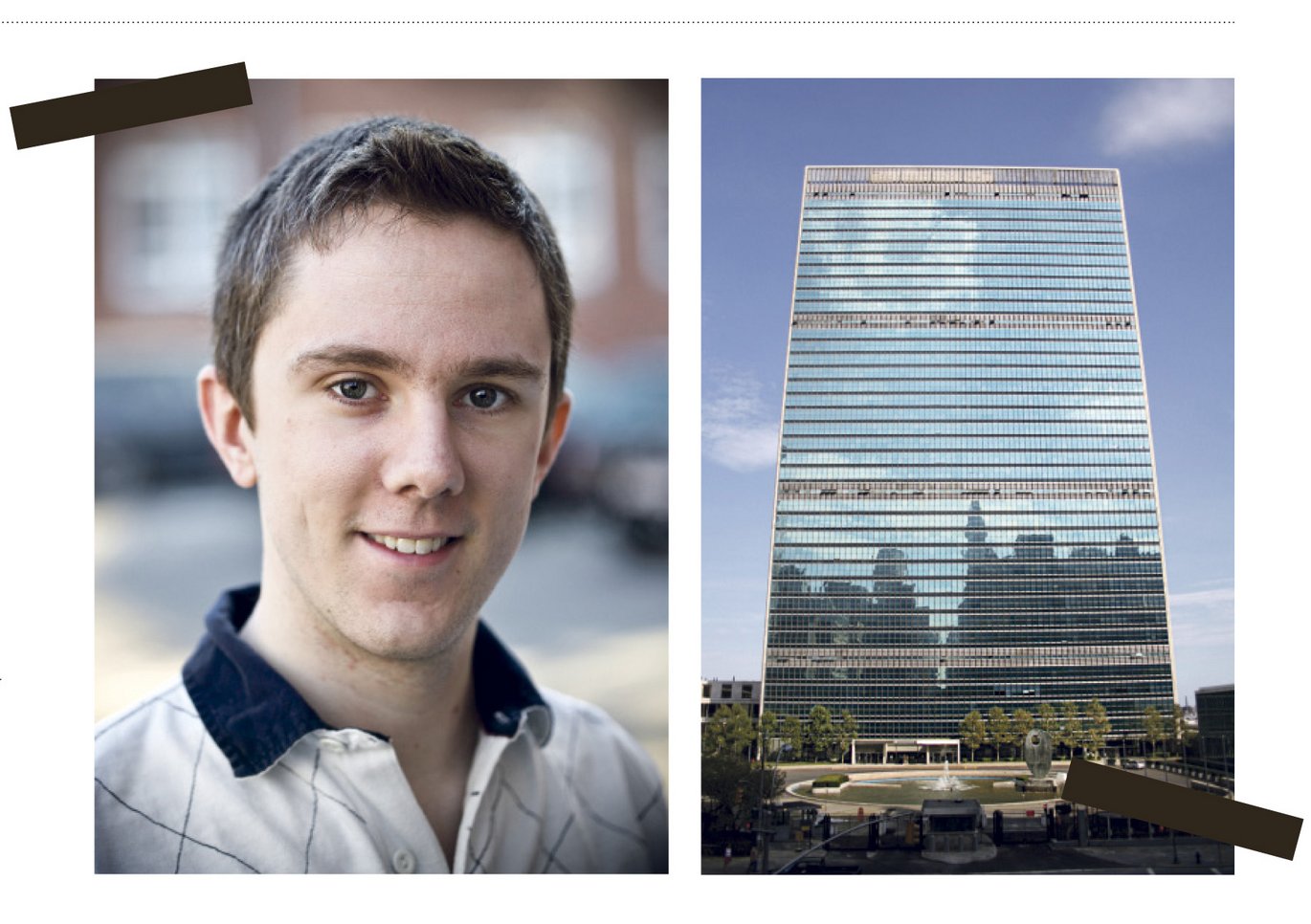Two months with the United Nations
Study diary of an Englishman in New York ...

As an International Studies Master’s student at AU, it was strongly encouraged, as with many other courses, that I fulfil a large part of my second year credit requirements through internships. Having studied courses such as International History, International Cultural Analysis, and International Relations and Organisations, the internship scheme at the United Nations seemed like an obvious choice to try for. A few months later I received the news that the Department of Peacekeeping Operations had accepted me for a placement with them. The Department has of course attracted much unwelcome attention over the past twenty years or so with numerous high-profile failures such as in Rwanda and Bosnia.
Arrival in the Big Apple
I landed a few days before my internship was due to start, giving myself time to get over the jet lag before diving into the work with the UN. And diving in it certainly was: on my first day I was given a whistle-stop tour of the office, meeting my permanently-busy colleagues, before being sat in front of a computer to draft a summary of key events that had occurred in Liberia during the previous day. This was one of a number of tasks I was required to perform on a daily basis, and would cover everything from political and social developments (the President fired her entire Cabinet in early November, for instance) through to the rather more grim task of the tallying of the murder and rape statistics.
An intern’s life is never dull
Aside from my daily reports, I was given a variety of other responsibilities, stretching from the drafting of weekly briefings for the Security Council on the Mission’s progress through to keeping an eye on developments in the wider West African sub-region. Initially done together with my supervisor, this latter responsibility was entirely in my hands for several weeks when he went on leave. This left me responsible for updating the Department on diverse topics, such as Guinea’s transition from military rule to democracy, the holding of referendums in Niger, and Al-Qaeda affiliated terrorism in the Sahel region. This duty even necessitated representing the Department at high-level meetings, which meant me sitting in a corner pretending I knew enough to keep up with tremendously experienced and inspiring colleagues. This level of responsibility, although daunting, was an extremely pleasant surprise, and helped to demonstrate to me that the UN considers its interns an important part of its make-up.
Tragedy in the Côte d’Ivoire
Unfortunately, I also saw the UN in crisis mode, as elections in Liberia’s neighbour, the Côte d’Ivoire, which also has a Peacekeeping Mission, turned extremely sour. The loser of the election, incumbent President Gbagbo, refused to relinquish his grip on power, despite the international community calling on him to step down. Events turned violent with clashes between his supporters and those of opposition candidate Alassane Ouattara, and the UN’s credibility again looked to be in question. The Department became a hive of activity, with the Côte d’Ivoire team burning the candle at both ends to try and resolve the situation – an impressive and humbling effort which is doubtless ongoing as a way out of the crisis remains elusive.
Lessons learned
My time at the UN was undoubtedly a great experience, and helped to build on the knowledge and skills I had gained during the first year of my Master’s degree. The UN system up close was a mixed beast, and being able to see firsthand the blood, sweat and tears that were pumped into it was inspiring and exasperating at the same time. Nevertheless, I emerged from my stint convinced that the world is better off for United Nations Peacekeeping Missions, even if the system remains far from perfect.
